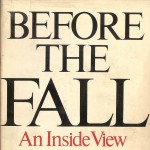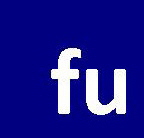

My first exposure to the writing of William Safire came via his “On Language” feature in The New York Times Magazine. His column was a favorite of mine and of word mavens the world over, I suspect. His love of language was infectious, clever, sometimes incandescent and often erudite.
I found his 1975 book, titled Before The Fall, in hardcover, on the cart of books being discarded by the local public library, and took it home with me. In a previous professional capacity, Safire had worked as a speechwriter for President Richard M. Nixon. As such, “Bill” Safire was a witness to history.
I seldom agreed with Safire’s or Nixon’s politics per se. Then again, those were different days. Our differences over public policies never amounted to the putrid partisan and ideological sinkholes that are currently being fracked between the Democrats and Republicans in this election year. The moderate Republican was not back then an endangered species as it is in the present day.
Safire was himself secretly and illegally wiretapped. He knew the crimes now memorialized in the word “Watergate” were wrong and a cautionary tale. But Safire’s book covers the breadth and depth of the Nixon years in more nuanced detail. In no particular order, the Nixon administration pursued diplomatic relations with China; it obtained the first strategic arms limitation treaty with the then-called Soviets; the Environmental Protection Agency was established. Troops were ordered home from Vietnam. Richard Nixon was a paranoid villain and pragmatic beyond a fault, and yet he was a transformational figure in American politics.
According to the jacket copy, Mr. Nixon’s “assessment” of Bill Safire was that “he’s a writer.” Safire was that and more. Safire never sought to write words for their own sake but also worked to imbue those words with their true meanings. As polemical as his linguistic prescriptions and proscriptions may have been, I believe he believed them; Safire was honest that way.
Also memorable was Safire’s attribution to arguably the smarmiest and most cynical of the Watergate co-conspirators, the indicted presidential political advisor Charles “Chuck” Colson. A few months after leaving the White House but a few months before copping a plea, Safire quotes Colson as saying: “I’ve discovered that all the guys we thought were our friends weren’t so good, and all the guys we thought were our enemies aren’t so bad.”

